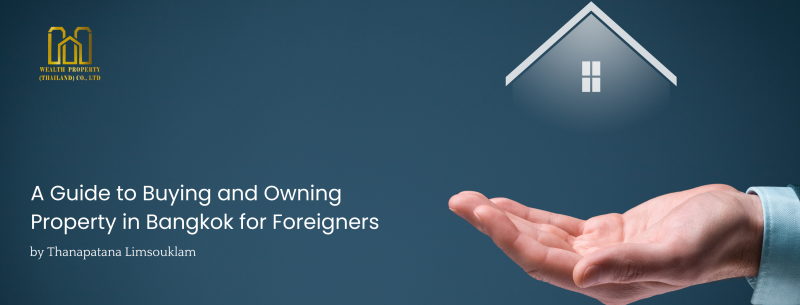WeChat ID :

Thailand especially Bangkok is a vibrant and attractive city for property investment, offering a blend of modern living and rich cultural experiences. However, for foreigners looking to buy and own property in Bangkok, it’s essential to understand the regulations, processes, and documentation involved.
Condominium Ownership: Foreigners are allowed to own up to 49% of the total area of a condominium building. This is the most straightforward property purchase option for foreigners.
Land Ownership: Foreigners cannot own land directly in Thailand. However, they can lease land for up to 30 years, with the option to renew the lease.
Investment: Investing at least 40 million THB in Thailand might allow foreigners to buy up to 1 rai (approximately 1,600 square meters) of land for residential purposes, subject to approval from the Ministry of Interior.
Choosing the Property: Begin by selecting a property that complies with the 49% foreign ownership quota for condominiums.
Contract Signing: Sign a purchase agreement with the seller. This contract should outline the terms and conditions of the sale.
Deposit Payment: Pay a deposit (usually 10% of the purchase price) to secure the property.
Foreign Exchange Transaction Form (FETF): To prove that the funds used to purchase the property were transferred from abroad, you'll need an FETF from a Thai bank. This form is essential for the property registration.
Transfer of Ownership: The final step is the transfer of ownership at the Land Department. Both the buyer and seller (or their representatives) must be present. Required documents include:
Fees and Taxes: Be prepared to pay transfer fees (approximately 2% of the property value) and other related taxes, which can be negotiated with the seller.
Foreigners without a work permit can still open a bank account in Bangkok, though the process might vary by bank. Typically, you'll need:
Buying property in Thailand as a foreigner is a viable and attractive option, especially for condominium units. By understanding the regulations, following the correct procedures, and preparing the necessary documentation, you can successfully navigate the property market. Whether you’re looking to invest or settle down, Bangkok offers a range of opportunities for foreign buyers.